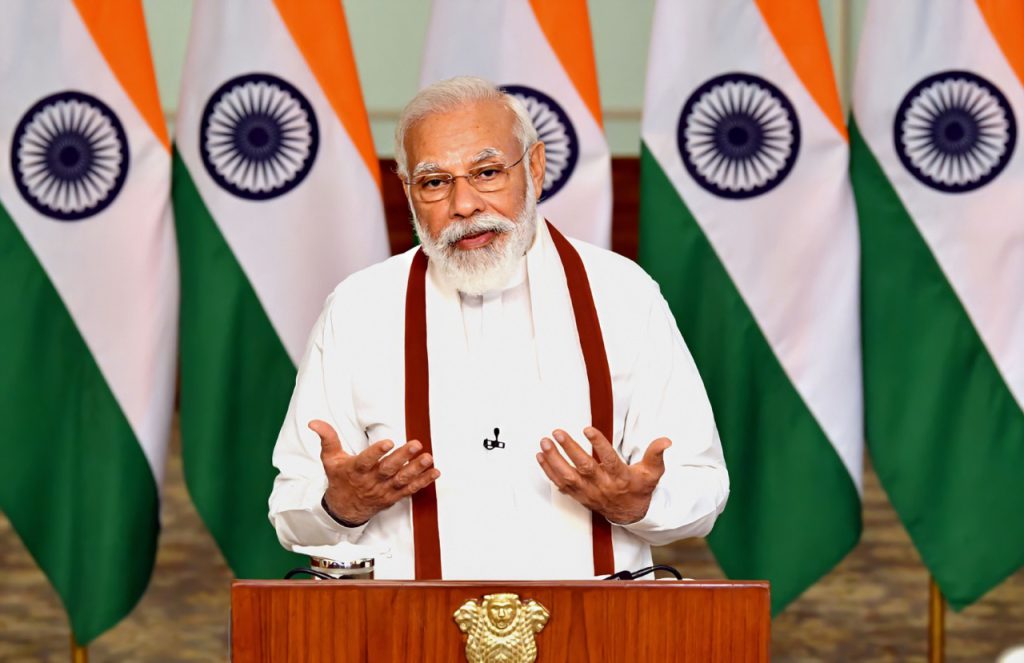Is there a secret to longevity? This health expert says 1,000% yes
In the era of social media, post-COVID, and with mental health at the forefront, a shift is taking […]

Mahatma Gandhi held the belief that India’s quest for independence would remain incomplete as long as African nations were still subjected to colonial rule. Following its own newfound independence, India recognized its responsibility and eagerly sought to assume a distinctive role in the arena of international politics. The nation made dedicated efforts to offer both moral and financial support to African countries that were struggling against colonialism. India utilized various platforms, including the United Nations General Assembly, to bring attention to the injustices of colonial rule.
India initiated its development cooperation programme merely two years after gaining independence. This programme was founded upon key principles: opposing colonialism, sharing developmental experiences, and demonstrating solidarity with the “third world.” These principles carried significant normative weight at the time because the global aid landscape after World War II was predominantly controlled by Western powers, primarily focused on perpetuating unequal relationships between the Global North and the Global South. African nations have significantly benefited from India’s capacity-building initiatives, and Africa continues to hold a special place in India’s foreign policy. In a 2018 address to the Ugandan Parliament, Prime Minister Narendra Modi declared that Africa was a top priority for India.
Regrettably, Africa remains marginalized on the international stage. The continent wields minimal influence in institutions like the International Monetary Fund (IMF) and the World Bank, which are dominated by creditor nations. Indeed, the 54-member African Union (AU) unquestionably merits representation within the G20. Africa has endured a prolonged period of neglect in international geopolitics, often seen through the lens of affluent nations in the Global North as a recipient of charity. However, this perception is rapidly evolving. Earlier this year, the International Monetary Fund (IMF) forecasted that Angola, Ethiopia, Nigeria, Kenya, and South Africa would be counted among the world’s swiftest expanding economies. Also, Africa is on the brink of surpassing Asia as the globe’s most rapidly advancing region.
During its G20 presidency, India has advocated for the democratization of global governance institutions and the global financial system and has strongly supported the inclusion of an African seat at the G20, with South Africa currently being the sole African representative in the group. India’s push for the African Union (AU) to have a seat in the G20 aligns with its broader policy of championing African causes in international forums. The AU’s inclusion in the G20 would result in greater representation for the African continent and a heightened focus on African economic and development issues within the G20. The precedent set by the European Union’s membership in the G20, represented by the European Commission and the European Council, supports the notion of AU membership, as both entities serve similar purposes. Full-fledged AU membership within the G20 would enable Africa to contribute to discussions on matters directly affecting the continent and enhance the credibility of the G20 by representing approximately 80 percent of the global population, as opposed to the current 60 percent.
The G20 primarily functions as an economic forum, encompassing roughly 85% of the world’s total GDP. In the event that the African Union (AU) were to become a member, the group would transform into the G21, becoming even more reflective of global demographics. Africa, with its population constituting 17% of humanity and its economy contributing an additional $3 trillion to the G21’s collective output, would play a substantial role in this expanded group. Moreover, Africa’s significant reserves of minerals, which are instrumental in fuelling the digital age, underscore its strategic importance for the future.
A majority of G20 members have officially expressed their endorsement for the African Union’s (AU) application for membership including Canada, Brazil, China, Russia, South Africa, France, the United States, Germany, Saudi Arabia, Indonesia, India, Japan, and Italy have already made public commitments to support the AU’s bid. If this membership expansion becomes a reality, it would mark the very first enlargement of the G20 since its establishment in 1999.

In the era of social media, post-COVID, and with mental health at the forefront, a shift is taking […]

With its fast speeds and revolutionary potential, 5G stands out as a noteworthy milestone in the field of […]